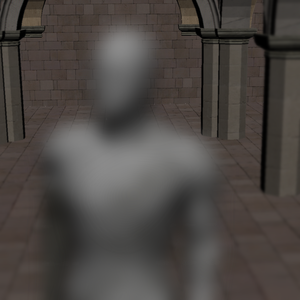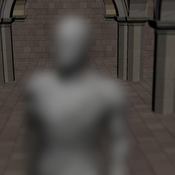Information
- Publication Type: Article in a Book
- Workgroup(s)/Project(s):
- Date: March 2013
- Booktitle: GPU Pro 4: Advanced Rendering Techniques
- Editor: Wolfgang Engel
- ISBN: 9781466567436
- Note: to appear
- Publisher: A K Peters
- Pages: 187 – 200
- Keywords: depth of field, realtime, layers, blurring
Abstract
This chapter describes a method for simulating Depth of Field (DoF). In particular, we investigate the so-called partial occlusion effect: objects near the camera blurred due to DoF are actually semitransparent and therefore result in partially visible background objects. This effect is strongly apparent in miniature- and macro photography and in film making. Games and interactive applications are nowadays becoming more cinematic, including strong DoF effects, and therefore it is important to be able to convincingly approximate the partial-occlusion effect. We show how to do so in this chapter; with the proposed optimizations even in real time.Additional Files and Images
Weblinks
No further information available.BibTeX
@incollection{schedl-2013-gP4,
title = "Simulating partial occlusion in post-processing
depth-of-field methods",
author = "David Schedl and Michael Wimmer",
year = "2013",
abstract = "This chapter describes a method for simulating Depth of
Field (DoF). In particular, we investigate the so-called
partial occlusion effect: objects near the camera blurred
due to DoF are actually semitransparent and therefore result
in partially visible background objects. This effect is
strongly apparent in miniature- and macro photography and in
film making. Games and interactive applications are nowadays
becoming more cinematic, including strong DoF effects, and
therefore it is important to be able to convincingly
approximate the partial-occlusion effect. We show how to do
so in this chapter; with the proposed optimizations even in
real time.",
month = mar,
booktitle = "GPU Pro 4: Advanced Rendering Techniques",
editor = "Wolfgang Engel",
isbn = "9781466567436",
note = "to appear",
publisher = "A K Peters",
keywords = "depth of field, realtime, layers, blurring",
URL = "https://www.cg.tuwien.ac.at/research/publications/2013/schedl-2013-gP4/",
}


 Paper
Paper
